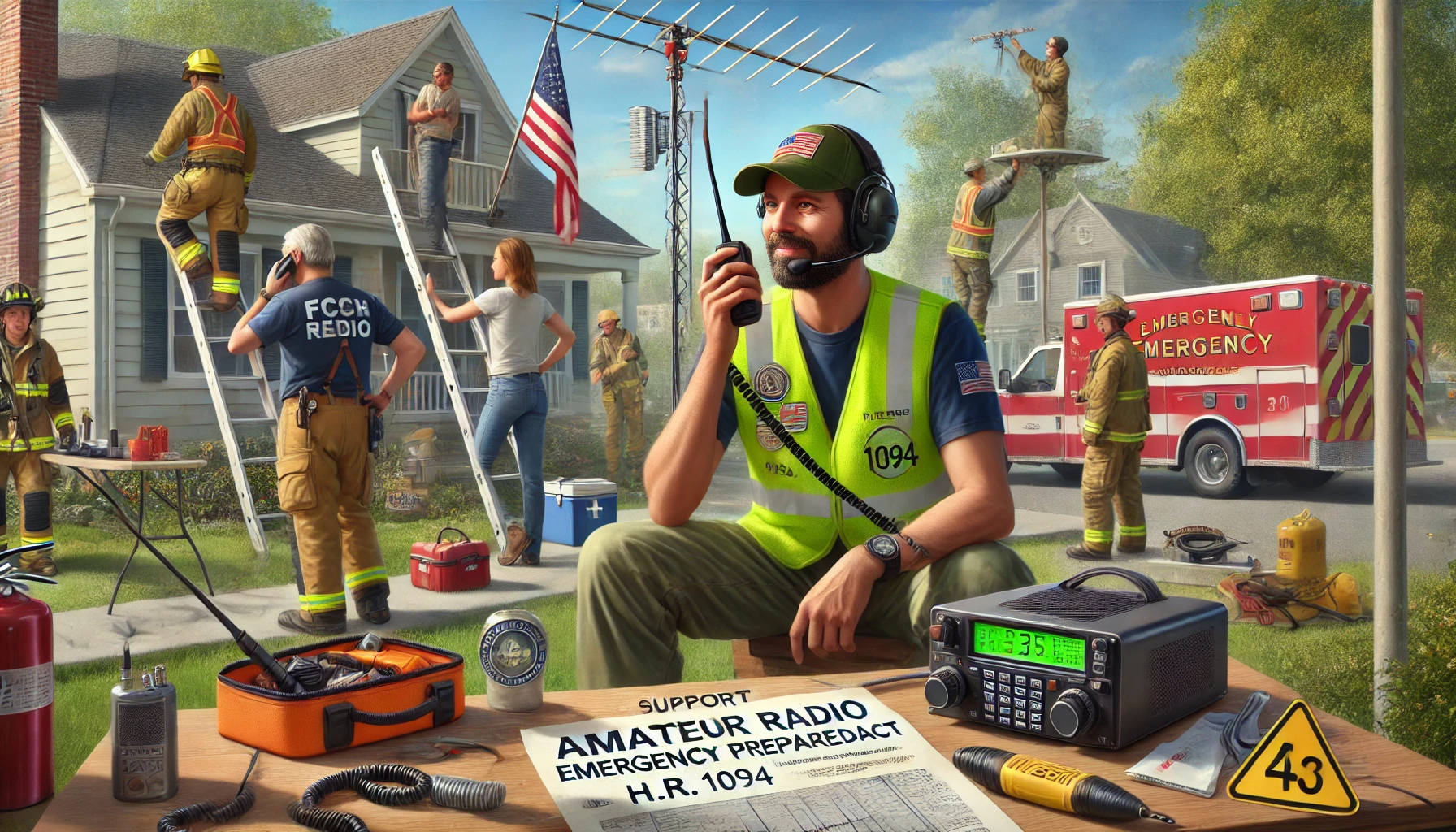As an Amazon Associate I earn from qualifying purchases. This means that if you click on an Amazon link from my blog The Cyber Aviator Chronicles and make a purchase, I may earn a commission. This does not incur any additional cost to you. I only recommend products I believe in and that I think would be helpful to my readers.See my Disclosure Policy for more information.
On January 30, 2024, Senators Roger Wicker and Richard Blumenthal introduced the Amateur Radio Emergency Preparedness Act in the Senate. This landmark legislation aims to protect and enhance the rights of amateur radio operators across the United States, recognizing their indispensable role in maintaining communication lifelines during crises.
Understanding the Amateur Radio Emergency Preparedness Act
The Amateur Radio Emergency Preparedness Act includes several crucial measures:
- Prohibiting Restrictive Private Land Use Rules: The Act bans private land use restrictions that impair amateur operators from installing or maintaining antennas on property under their control.
- Permissible Restrictions: The legislation allows certain restrictions, such as those requiring antennas to comply with manufacturer specifications, zoning ordinances, and building codes.
- Limitations on Prior Approval: The Act restricts homeowners associations’ ability to require prior approval for antenna installation.
- Antennas Exempt from Prior Approval: Specific types of antennas don’t require prior approval, including:
- Antennas less than 1 meter in diameter
- Flagpole antennas up to 43 feet in height
- Minimally obtrusive wire antennas
- Vertical antennas up to 43 feet in height
- Private Right of Action: Amateur operators can bring legal action in federal court without first exhausting state law remedies.
These provisions aim to create a more supportive environment for amateur radio operators, acknowledging their vital role in emergency communications.
For those interested in the technical aspects of amateur radio, our Amateur Radio License Beginner’s Guide provides a comprehensive overview of getting started in this field.
The Crucial Role of Amateur Radio in Emergency Preparedness
Congress recognizes that over 770,000 amateur operators are licensed by the FCC in the United States. The Act acknowledges the strong federal interest in the effective performance of amateur stations established at operators’ residences.Amateur radio provides several key benefits:
- Life-saving emergency communications at no cost to taxpayers
- A platform for technical self-training in modern telecommunications and electronics technology
- Emergency communications techniques and protocols
The flexibility and resilience of amateur radio make it an indispensable tool in the emergency preparedness toolkit. By supporting and enhancing the capabilities of amateur radio operators, this Act directly contributes to strengthening our nation’s emergency response infrastructure.
Implementation and Enforcement
The Act includes several provisions to ensure fair implementation and enforcement:
- Reasonable Application: Any permissible restrictions must be reasonably applied and enforced.
- Deemed Approval: If a community association doesn’t approve or deny an application within 45 days, it’s automatically approved.
- Burden of Proof: In any legal action, the burden of demonstrating compliance with the Act falls on the party seeking to impose or enforce restrictions.
- Stay of Enforcement: Enforcement efforts must be suspended if an action is initiated to seek a declaratory ruling from the FCC or a court.
Furthermore, the Federal Communications Commission must promulgate regulations to implement the Act within 180 days of its enactment.
For those looking to join this vibrant community, our guide on How to Get Started with an Amateur Radio License provides valuable insights and resources.
Supporting the Legislation
To support the Amateur Radio Emergency Preparedness Act, consider taking these actions:
- Contact Your Representatives: Reach out to your Senators and Representatives to express your support for the Act.
- Spread Awareness: Use social media and local community forums to educate others about the Act and its significance.
- Engage with Local Amateur Radio Clubs: Join or support your local amateur radio club to participate in grassroots efforts.
- Participate in Emergency Drills: Many amateur radio clubs conduct emergency preparedness drills, demonstrating the practical importance of amateur radio.
- Educate Yourself and Others: Take the time to understand the technical and regulatory aspects of amateur radio to advocate more effectively for the Act.
For the full text of the legislation, visit: H.R. 1094
In conclusion, the Amateur Radio Emergency Preparedness Act represents a significant step forward in recognizing and enhancing the critical role of amateur radio operators in emergency situations. By removing barriers and providing legal protections, this Act ensures that these dedicated individuals can continue to serve their communities effectively when it matters most.


Leave a Reply